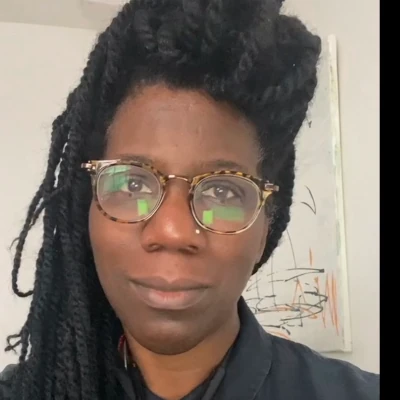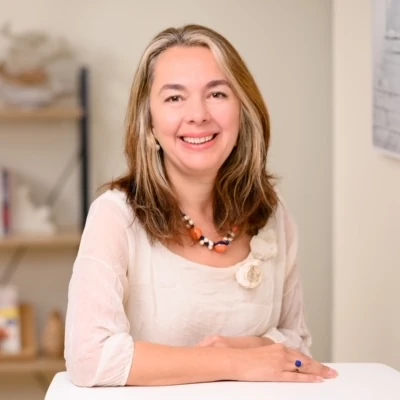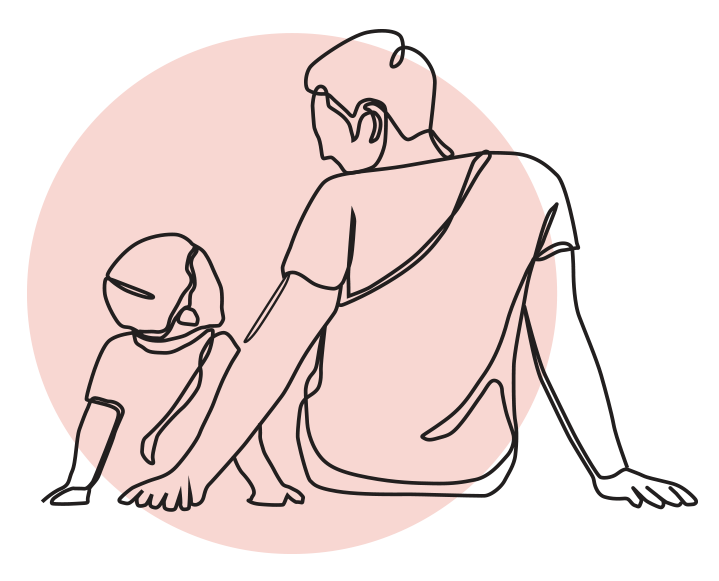Neurodiversity Parent Counselling
Are you finding it hard to support your neurodiverse child? Is your child about to be assessed for Autism or ADHD? Maybe you are wondering how to talk to your child about a diagnosis?
Society is going through a positive sea-change in terms of the way neurodivergent individuals are perceived and supported at school and beyond. However, there is still widespread misunderstanding about the various conditions this term includes (Autism and ADHD being the most common) and in some cases harmful prejudices leave parents anxious about starting an assessment or receiving a diagnosis.
About 15% of the global population are thought to be neurodivergent. Broadly speaking neurodiversity refers to brains that are built and work somewhat differently to a loosely defined ‘neurotypical’ majority. In the UK at least 1% of people are thought to have an autistic spectrum condition and about 4% have ADHD. Dyslexia, dyspraxia and dyscalculia are about 10%, 6% and 6%. The steady rise in cases probably has something to do with changes in definitions and therefore diagnosis as well as greater awareness so that individuals who would previously have been missed are better understood. There’s rarely an identifiable cause but scientists suspect that DNA underpins 80% of autism and ADHD.
As a parent you will probably have been modifying your world to meet your child’s needs for a long time prior to considering a diagnosis so in some ways it can be a relief to have your experiences understood. But it can also be a uniquely painful time and space should be given to the whole range of emotional responses in your family. Our therapists can help you make sense of your feelings and work out how to support the emotional needs of your child as they learn to celebrate their uniqueness. Learn more, about our parent counselling sessions or Book Today.
Our Experts in Neurodiversity
Karen Lever
Child & Adolescent Psychotherapist
I manage therapeutic services in two London primary schools, as well as supporting trainee psychotherapists. I also work clinically with children.
Sama Hunt
Child & Adolescent Art Psychotherapist
For 18 years I have worked in adult mental health within the NHS. I have also worked with young people and their families within school settings for the past 8 years.
Tamsin Lemkow
Child & Adolescent Counsellor
I have been working as a therapist with Child in Time since 2013 in schools. I also support parents with a range of difficulties such as divorce, family breakdown, bereavement, and mental health.
Helen Curren-Anaman
Child & Adolescent Psychotherapist
I have over 20 years of experience practicing within private, public, and charity settings offering consultations for children, young people, and families.
Parenting Blog
- Neurodiversity and Family TripsDays out or travel when you have a neurodivergent child can be a challenge. Some parents feel a sense of fear when they leave the familiarity of home […]… Read more.
- Should I Seek a Diagnosis for my Child?We spoke to some of our families about seeking a diagnosis for neurodevelopmental conditions (such as ASC and ADHD) and asked them whether they feel it has been beneficial for their child…. Read more.
- Entering the Teens with ASC (Autistic Spectrum Condition)Parents are often anxious about the way in which the physical and hormonal changes of adolescence will affect their child as they head into their teens. Factor Autism Spectrum Disorder (ASD) into the equation, and the picture can become more complex. How might normal acts of teenage rebellion look for a child who struggles with behavioural control? Navigating complex social dynamics at this age is always fraught with intensity, but will it be more of a challenge for a neurodiverse child?… Read more.
Additional Parent Resources
There are many exceptional resources for parents available online but it can be hard to find them if you don’t know where to look. Our team has compiled a list of recommended organisations, website and helplines for a wide range of parenting concerns. As well as support for more serious mental health issues, you’ll find our latest creations and recommendations of parenting videos, podcasts and books to add to your reading list. Learn more…
Recommendations for Parents
“Autism: Talking Together about a Diagnosis” by Rachel Pike published by the National Autistic Society. This is really helpful for parents wanting help talking to their child about a diagnosis
“Can I tell you about ADHD? A Guide for Friends, Family and Professionals” by Susan Yarney. This short book from the perspective of a child is really accessible and informative.
“Taking Charge of ADHD” by renowned ADHD expert Russell A. Barkley, Ph.D. A well regarded handbook for anyone raising a child with attention deficit. In it, Barkley discusses the causes of ADHD, medication options, advice for parents with the condition, sibling issues, and how to work with schools and healthcare providers.
“The Explosive Child: A New Approach for Understanding and Parenting Easily Frustrated, Chronically Inflexible Children” by Ross W Greene PhD. A groundbreaking, research-based approach to understanding and parenting children who frequently exhibit severe fits of temper and other challenging behaviors, from a distinguished clinician and pioneer in the field.
“8 Keys to Parenting Children with ADHD” by Cindy Goldrich & Babette Rothschild. The book offers parents science-based insights and systems for cultivating confidence, independence, and communication skills in children with ADHD. The eight “key” concepts presented will reduce chaos, improve cooperation, and nurture creativity and drive in children with ADHD.
“Brain Brilliance: 60 Nourishing Recipes And A Nutritional Toolkit For Dyslexia, Dyspraxia, ADHD, Autism and All Neurodivergent Kids” by Lucinda Miller. Brain Brilliance will help you and your children make the important connection between what they eat and their mood, behaviour, and learning – even if they are a highly selective eater and resistant to change.
Recommended Organisations
ADHD UK. By people with ADHD for people with ADHD.
ADDitudemag. All things ADHD. Expert info & strategies.
National Autism Society. Advice & information about autism.
Autistica. A charity helping understand autism & improve diagnosis.
FAQs
What is Confident Parenting?
Confident Parenting enables you to feel back in control of your parenting choices. We give you options based on the reality of your family at this time, rather than advocating for one approach. All of our consultants are vetted and extremely experienced child/adolescent or family therapists so you know you are in safe hands. Our vision is of accessible, professional and empowering parent support. A space to reflect and to come away with new strategies during challenging times. We believe the right conversation at the right time can empower parents to move forwards themselves.
How much will the session cost?
Sessions cost £80 per single session (45mins) + follow up email summary.
Who are Confident Parenting sessions for?
Sessions are suited to parents and carers of all ages. In the early years especially, parents often struggle with emotional and behavioural issues that typify development at this stage including emotional regulation, sibling rivalry, eating, sleep, boundaries and peer relationships.
At primary and secondary age, parents may be seeking advice about many of the areas outlined above as well as issues often seen at this stage, including work stress and anxiety, growth mindset, confidence and body issues, gender, sexuality and identity.
Where do the sessions take place?
The Confident Parenting sessions take place online via Zoom. You will receive a link prior to the selected date and time.
Who should attend sessions?
Sessions are for parents and primary carers. Where there are two parent families we recommend that both parents attend sessions if possible. This is so that the presenting issue can be discussed from the perspectives of all carers involved. A whole-family approach can be explored and developed.
How many sessions can I have?
We recommend two sessions – a single session consultation with a follow up session. You can always book in another session when you choose. The single session/follow up model ensures you make the most of the one session but return to discuss your issue and develop your thinking after you have put new ideas into practice.
What’s involved in the pre-session questionnaire?
- What is your main concern (NB how old is your child and how long have you been concerned)?
- What have you already tried that has/hasn’t helped?
- What would you like to get out of the session?
Where do I find the pre-session questionnaire?
This questionnaire will be generated online when booking.
What should I do in advance?
Please complete the questions on the pre-session questionnaire generated online when you book.
We also recommend that you consider these additional questions in preparation for your session.
- How is the problem affecting A. your child B. you C. other people in you/your child’s life?
- What do you think we need to know about the situation in order to be able to help?
- For the therapist to be most helpful, is there anything you feel is important to know about your culture, ethnicity, religion, language, sexual orientation, gender identity/expression, mental or physical health or any other factor?
Can I record my session?
No – we do not record sessions. Your session is a space for introspection and reflection as well as a place to learn strategies and techniques to take away. It is likely that recording a session would inhibit free expression during the session and risk client confidentiality after the session.
Instead we provide a follow up email with a summary of the session and strategies to try at home, so you don’t have to take notes during the session.
What additional parent resources are available from Child in Time?
Visit our Parent Support Resources for additional online parenting help and advice. You’ll find recent parenting blogs, book recommendations, helplines, and organisations here.












